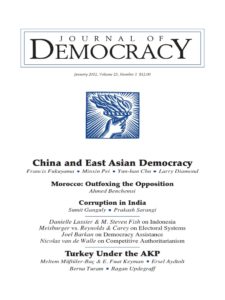 Can a totalitarian country that does not believe in liberty, democracy and other human values that form the core of the free world be allowed to be the leading superpower, directing the destiny of humanity in the 21st century? observers ask.
Can a totalitarian country that does not believe in liberty, democracy and other human values that form the core of the free world be allowed to be the leading superpower, directing the destiny of humanity in the 21st century? observers ask.
“Securing our freedoms from the Chinese Communist Party,” Secretary of State Mike Pompeo said in July, citing China’s “bankrupt totalitarian ideology.” But others question the designation.
China is authoritarian and on the rise. But it is hardly Nazi Germany or Soviet Russia, the Quincy Institute’s Stephen Wertheim writes for The Times. China is open for business, whether on fair terms or not; the world’s largest trading nation makes a strange candidate for a totalitarian menace whose every activity closes off the earth.
What would it take for a global totalitarian government to rise to power indefinitely? This nightmare scenario may be closer than first appears, analyst Di Minardi writes for the BBC.
A 2017 report on existential risks from the Global Priorities Project warned that “a long future under a particularly brutal global totalitarian state could arguably be worse than complete extinction”. Though global totalitarianism is still a niche topic of study, researchers in the field of existential risk are increasingly turning their attention to its most likely cause: artificial intelligence.

Minxin Pei
The Embassy of Canada and The National Endowment for Democracy invite you to the seventeenth annual SEYMOUR MARTIN LIPSET LECTURE ON DEMOCRACY IN THE WORLD.
Totalitarianism’s Long Dark Shadow Over China
Minxin Pei, Pritzker Professor of Government and George R. Roberts Fellow, Claremont McKenna College.
Thursday, December 3, 2020. 8:00 p.m. Eastern Time (Click here to find the event in your local time.) RSVP by November 27
Pritzker ’72 Professor of Government and George R. Roberts Fellow at Claremont McKenna College. He is also a non-resident senior fellow of the German Marshall Fund of the United States. He serves on the editorial board of the Journal of Democracy and as editor-in-chief of the China Leadership Monitor. Prior to joining Claremont McKenna in 2009, Dr. Pei was a senior associate and the director of the China Program at the Carnegie Endowment for International Peace.
 A renowned scholar of democratization in developing countries, economic reform and governance in China, and U.S.-China relations, he is the author of From Reform to Revolution: The Demise of Communism in China and the Soviet Union (Harvard University Press, 1994), China’s Trapped Transition: The Limits of Developmental Autocracy (Harvard University Press, 2006), and China’s Crony Capitalism: The Dynamics of Regime Decay (Harvard University Press, 2016). His research has been published in Foreign Policy, Foreign Affairs, The National Interest, Modern China, China Quarterly, Journal of Democracy, and in numerous edited volumes.
A renowned scholar of democratization in developing countries, economic reform and governance in China, and U.S.-China relations, he is the author of From Reform to Revolution: The Demise of Communism in China and the Soviet Union (Harvard University Press, 1994), China’s Trapped Transition: The Limits of Developmental Autocracy (Harvard University Press, 2006), and China’s Crony Capitalism: The Dynamics of Regime Decay (Harvard University Press, 2016). His research has been published in Foreign Policy, Foreign Affairs, The National Interest, Modern China, China Quarterly, Journal of Democracy, and in numerous edited volumes.
Dr. Pei’s op-eds have appeared in the Financial Times, New York Times, Washington Post, Newsweek International, and other major newspapers. Dr. Pei received his Ph.D. in political science from Harvard University. He is a recipient of numerous prestigious fellowships, including the National Fellowship at the Hoover Institution at Stanford University, the McNamara Fellowship at the World Bank, and the Olin Faculty Fellowship of the Olin Foundation.
This event will be held virtually. All participants must register in advance to attend and will receive login instructions by email 48 hours prior to the event.
Please email press@ned.org to register as a member of the press.







